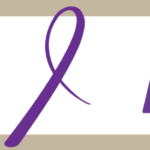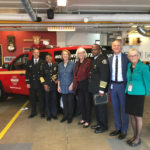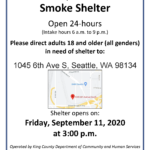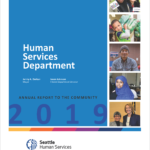Thanking Our Partners for Their Commitment to Ending Gender-Based Violence
“Maria” and her young daughter escaped a physically and emotionally abusive relationship. She received assistance from a DV Housing Program while suffering from broken ribs and other injuries caused by her abuser. The individual apartment provided to Maria and her daughter allowed her the time and space to heal from her physical injuries. She was connected to an Advocate who provided emotional and practical support. Once Maria healed enough to focus on next steps, the Advocate supported her in obtaining legal assistance with issues resulting from the abuse, and addressed challenges which impacted her options for more stable housing. Maria received advocacy to help facilitate payment of past housing debt and resolved past legal issues that were barriers to her being housed. She and her daughter participated fully in many of the programs and activities offered by the DV Program, and her family connected with other families who had also experienced similar trauma. Maria and her daughter recently moved into their own apartment, located in an area of town close by social services and programming that she is working with. As Maria moved out from the Housing Program, she expressed her gratitude and said that she was “grateful for the non-judgmental acceptance and support,” and vowed to “help other survivors in the future in whatever path she takes.” Maria continues to receive support from the DV Housing Program in the form of mobile advocacy, client assistance, and rental assistance. With support from the agency, Maria and her daughter are able to find peace, happiness, and new life free from violence. October is Domestic Violence Awareness Month. It is a time to remember victims/survivors of abuse and exploitation, to raise awareness of violence and its effects on families and communities, and a time to acknowledge and highlight those working to end gender-based violence. This year has been an especially challenging one. While agencies and programs quickly pivoted in response to COVID-19, we have witnessed a rise in reported incidents of gender-based violence and related fatalities both locally and nationally due to social distancing, economic deprivation and related conditions. Those most impacted prior to COVID and during COVID are overwhelmingly marginalized populations: communities of color, GBLTIQ, immigrants and refugees, and those living with disabilities. Maria and her daughter are one of more than 6,000 individuals/families assisted thus far in 2020 by the Seattle-funded network of providers. Our providers work in collaboration to provide wrap around services, including advocacy, counseling, therapeutic services, housing/shelter, legal assistance and representation, and systems improvement. With the “no wrong door” approach, our funded network mirrors the diversity in client population of Seattle-King County in providers and service options. Victim service agencies also participate on committees alongside system partners to assess, identify, plan and address systems needs and gaps, and to ensure that Seattle’s response is seamless. Such committees include: Access to Advocacy, Immigrant and Refugee Network, Peace in the Home, Day One, Coordinated Effort Against Sexual Exploitation (CEASE), Criminal Justice Committee, Domestic Violence Prevention Council (DVPC), and Domestic Violence Intervention Project (DVIP).






